3-14-2023
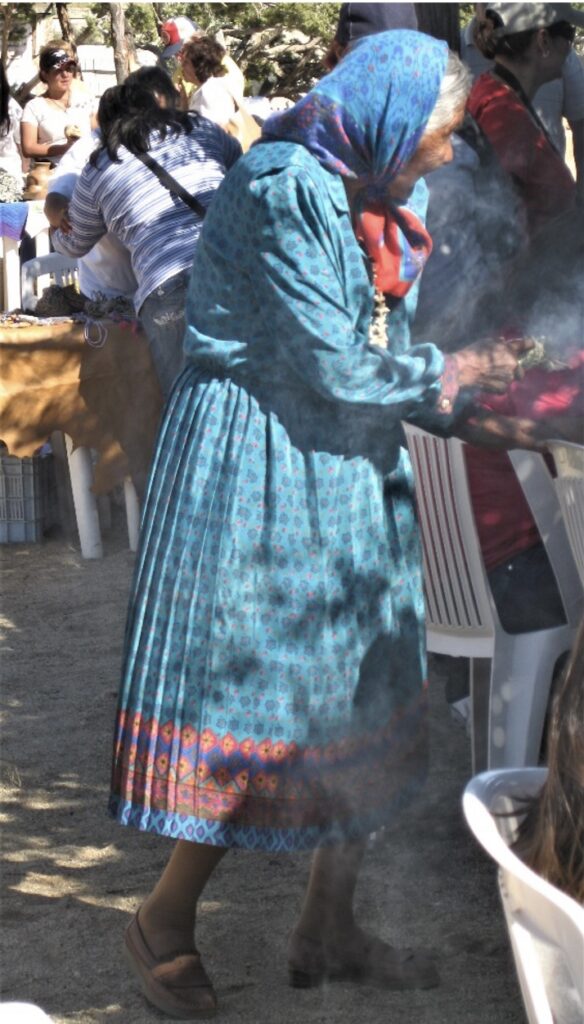
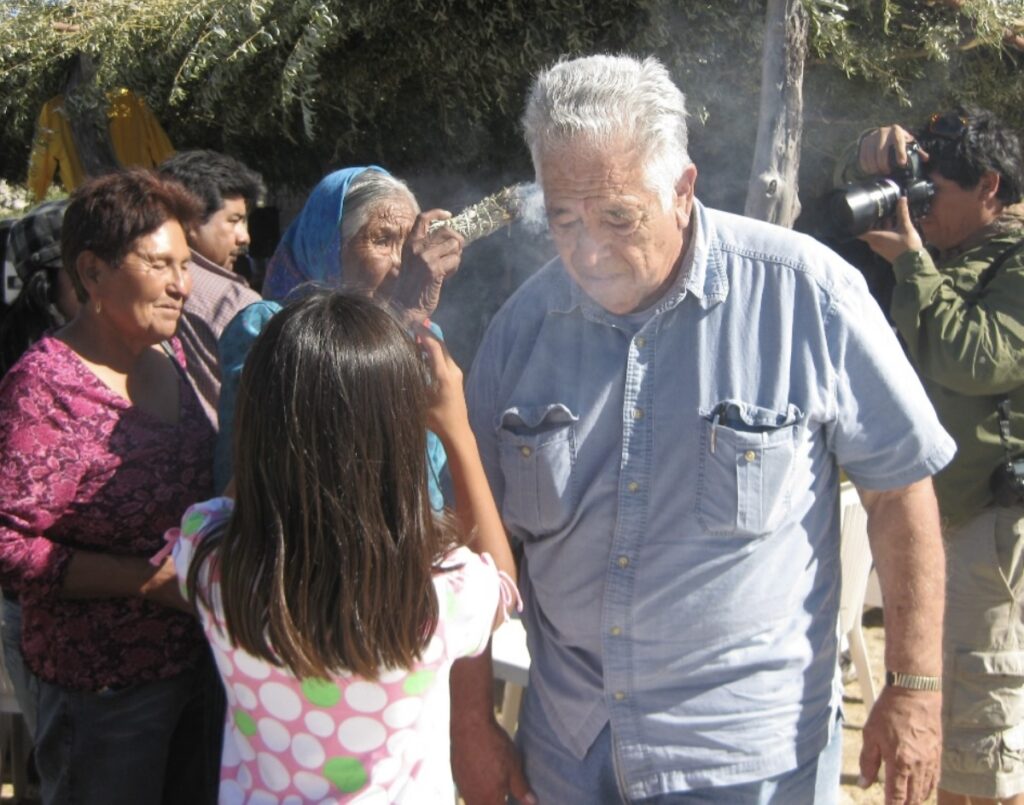
Valentín introduced me to indigenous leaders from Pa Ipai, Kiliwa, Kumiai, and Cucapá tribes in Baja. They gathered several times a year for ceremonies and artisan fairs. Pa Ipai Elder, Josefina Ochurte, opened this gathering of the elders with ceremonial smudging. She fanned participants with smoke from sage sticks using a large feather.
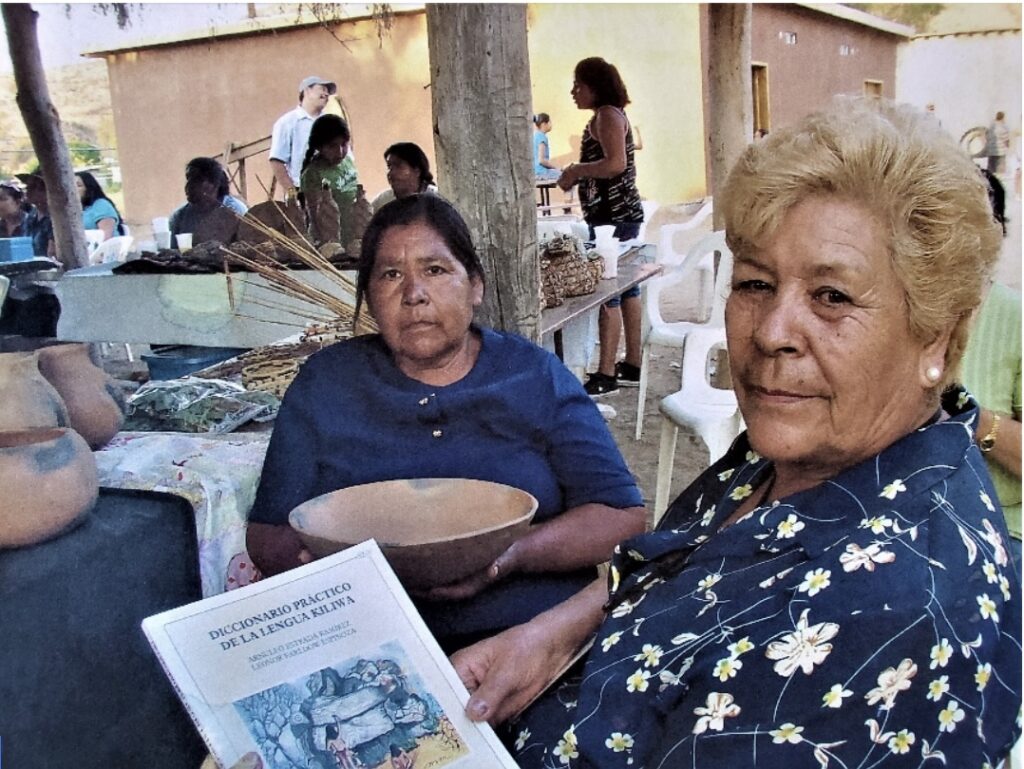
At another tribal gathering, Valentín introduced me to Leonor Farlow, a Kiliwa elder, recognized for her work in preserving the Kiliwa language. She is one of the last three native speakers of the language and is holding a Kiliwa/Spanish dictionary she created in collaboration with a linguistic anthropologist.
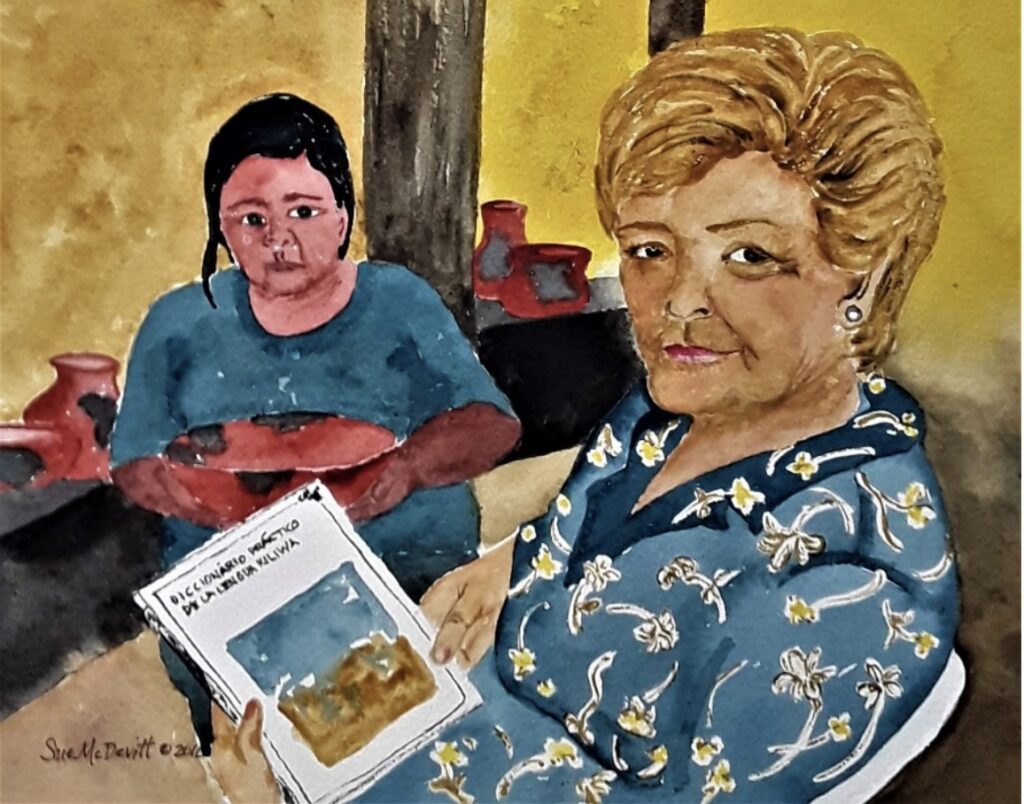
I later painted a watercolor of the photo of Leonor with Pa I’pai friend Tirsa Flores, who is selling her pottery to visitors.
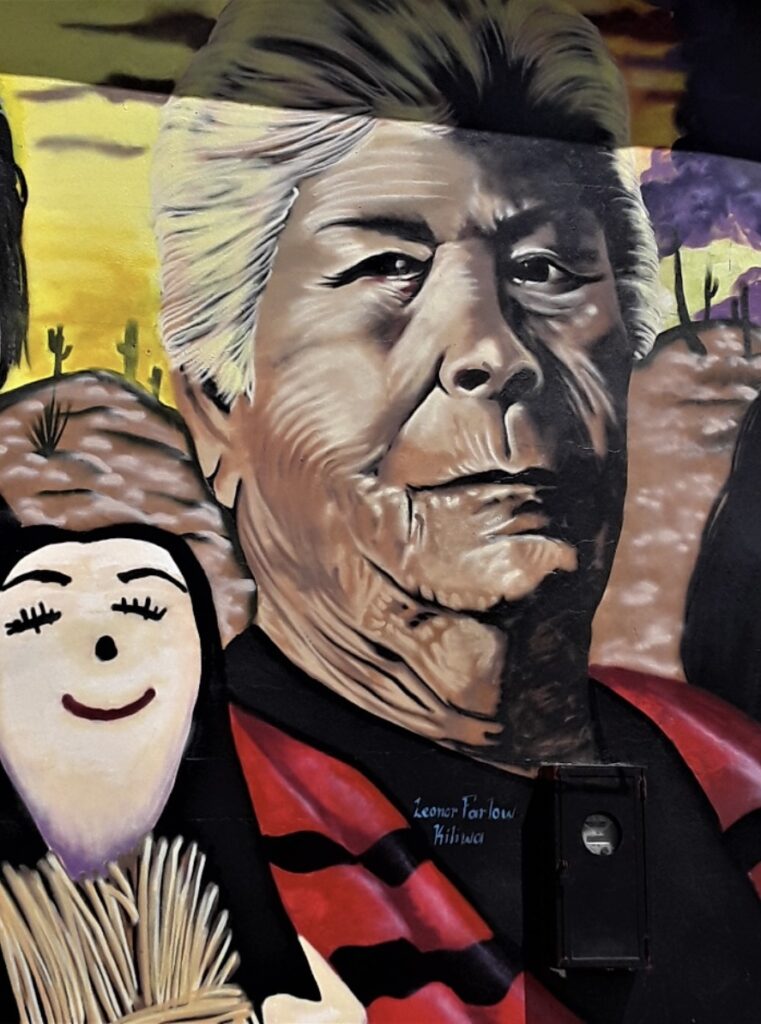
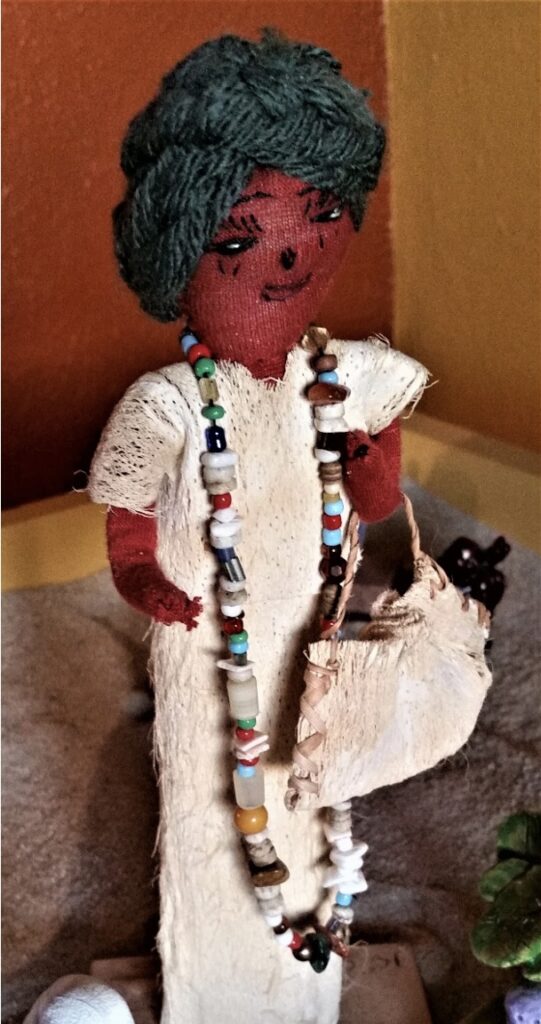
I purchased this Kiliwa grandmother doll handcrafted and signed by Leonor. One of her daughters created the scene below.
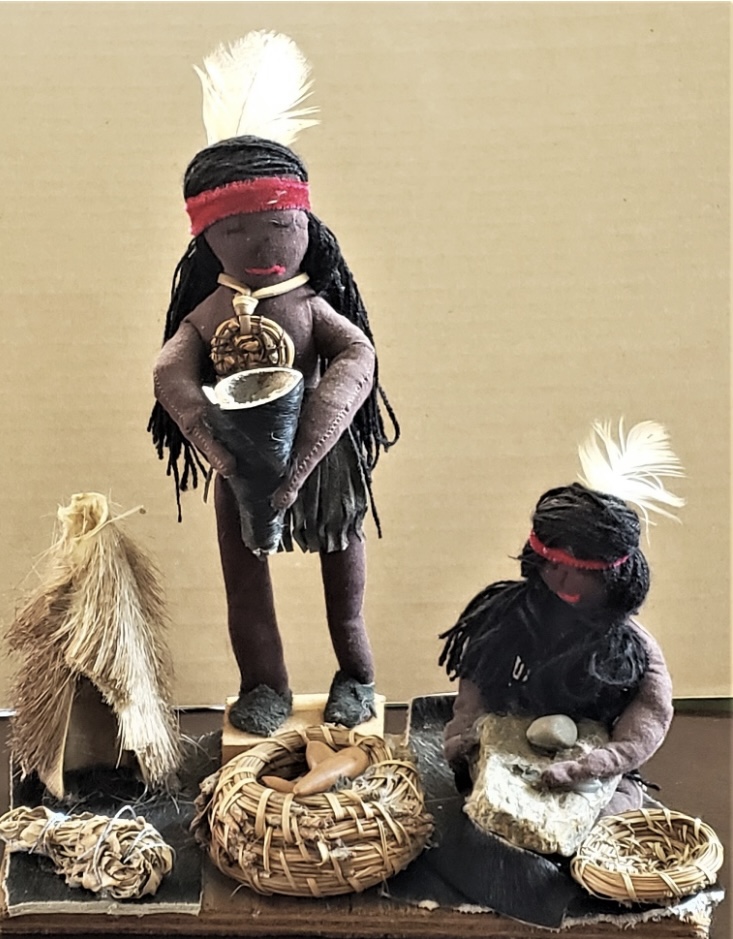
This doll tableau depicts a way of life that disappeared after the Spanish missionaries arrived. Acorns were the basis of the indigenous diet. They were leeched for days in baskets and pounded with a grinding stone on a flat piece of granite. The resulting meal served for making mush, bread, pudding, and other staples. Sage was bundled for smudging during ceremonies.
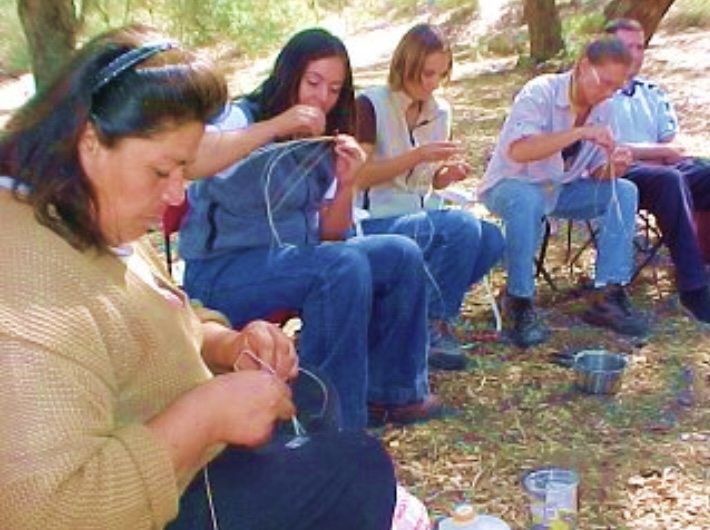
Rosa Maria (Naty) Silva, from San José de la Zorra (Kumiai), leads a basket making class.
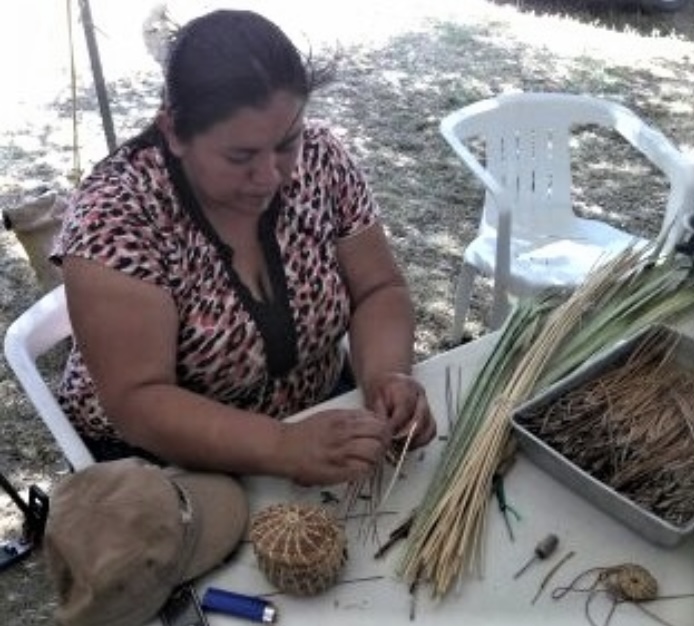
Aydee “Nini” Carreon, from San Antonio Necua (Kumiai), creates her baskets with pine needles and reeds. Her materials and tools are shown.
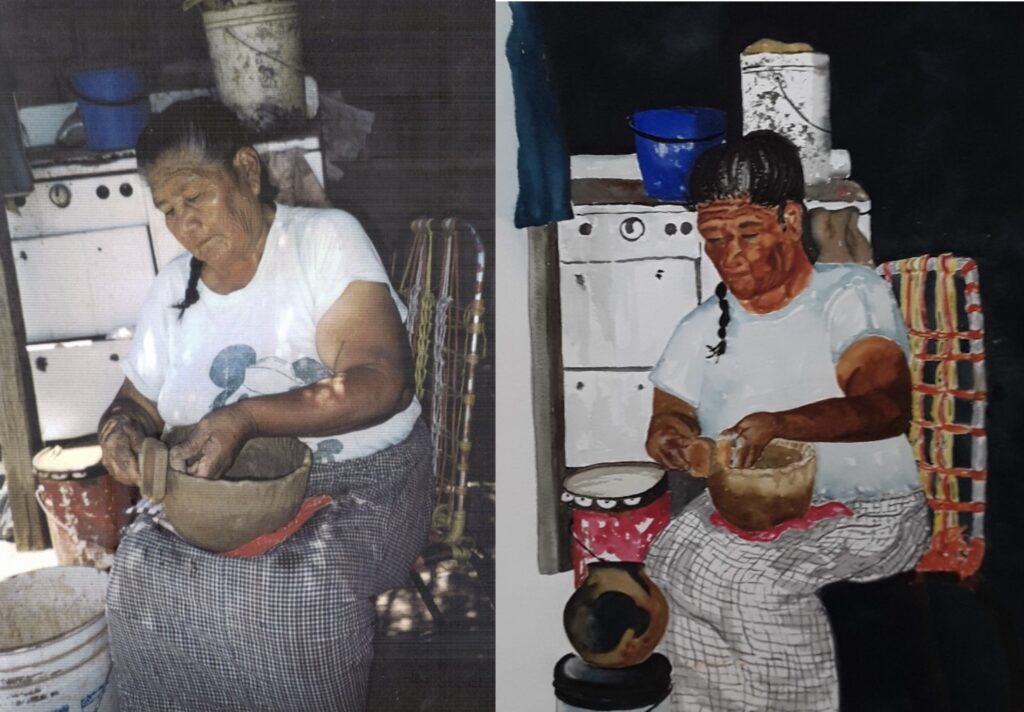
We visited Margarita Castro in her home in Santa Catarina (Pa Ipai community) and were invited to watch while she formed a pot. Later I painted a watercolor of this scene. Notice that she holds a flat rock on the inside of the pot while she beats the clay with a wooden paddle on the outside. A final piece is shown at her knees.

This was very interesting, exciting, and most of all… real. I also enjoyed the romance story. Thank you for sharing. Trudy Campbell
I love that you called it “real.” I felt so honored to have met down to earth people who have kept up their artisan traditions for hundreds of years.
Hugs, Niyazi